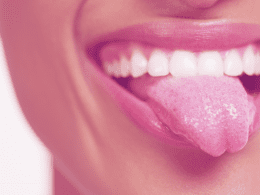Understanding Dehydration and Its Impact
Dehydration, a condition where the body loses more fluids than it takes in, can have a multitude of detrimental effects on our health. While most people associate dehydration with symptoms like thirst and dry mouth, its consequences extend far beyond mere discomfort. One such consequence that often goes unnoticed until it strikes is the onset of headaches. Need to Explore More About Health Problems And Their Solutions (Pee Urgency When To Get Home)
The Physiology Behind Dehydration-Induced Headaches
Fluid Balance and Brain Function
The human body operates within a delicate balance of electrolytes and fluids, crucial for the optimal functioning of all its systems, including the brain. When this balance is disrupted due to dehydration, the brain, being comprised mostly of water, is particularly susceptible to adverse effects.
Vasodilation and Increased Intracranial Pressure
Dehydration leads to decreased blood volume and, consequently, reduced blood flow to the brain. In response to this diminished blood flow, the body attempts to compensate by widening blood vessels in the brain—a process known as vasodilation. While vasodilation initially serves as a mechanism to increase blood flow, it can also result in increased intracranial pressure, leading to headaches.
Neurotransmitter Imbalance
Additionally, dehydration can disrupt the balance of neurotransmitters in the brain. Serotonin, a neurotransmitter involved in regulating mood and pain perception, is particularly affected by dehydration. Reduced serotonin levels have been linked to the development of headaches and migraines.

Identifying Dehydration-Induced Headaches
Recognizing the symptoms of dehydration-induced headaches is crucial for prompt intervention and relief. While headaches can have various triggers, those caused by dehydration often present with distinct characteristics:
- Location: Dehydration-induced headaches typically occur at the front or back of the head, although their location can vary from person to person.
- Intensity: These headaches are often described as dull or throbbing, with varying degrees of severity.
- Accompanying Symptoms: Individuals experiencing dehydration-induced headaches may also report symptoms such as dizziness, fatigue, and difficulty concentrating.
Prevention and Management Strategies
Hydration Habits
Maintaining adequate hydration levels is key to preventing dehydration and the associated headaches. Aim to consume at least eight glasses of water per day, adjusting intake based on factors such as activity level, climate, and overall health status.
Electrolyte Balance
In addition to water, replenishing electrolytes lost through sweat is essential, especially during periods of increased physical activity or exposure to heat. Incorporating electrolyte-rich foods and beverages, such as sports drinks or coconut water, can help restore electrolyte balance.

Regular Monitoring
Be vigilant about monitoring your hydration status, particularly in situations where risk is heightened. Pay attention to factors such as urine color (pale yellow indicates adequate hydration), thirst levels, and frequency of bathroom visits.
Prompt Treatment
If you experience symptoms or dehydration-induced headaches, address them promptly. Resting in a cool, shaded environment, rehydrating with fluids, and consuming electrolyte-rich snacks can help alleviate symptoms and prevent further complications.
Hydration vs. Dehydration
| Aspect | Hydration | Dehydration |
|---|---|---|
| Fluid Intake | Adequate consumption of water and fluids | Insufficient intake of water and fluids |
| Electrolytes | Balanced electrolyte levels | Electrolyte imbalance |
| Symptoms | None | Headaches, thirst, dry mouth, fatigue |
| Urine Color | Pale yellow | Dark yellow or amber |
| Cognitive Function | Optimal concentration and cognitive function | Reduced cognitive function, difficulty focusing |
Conclusion
Dehydration-induced headaches are not only uncomfortable but also serve as a warning sign of an underlying imbalance in the body’s fluid and electrolyte levels. By understanding the physiological mechanisms at play and implementing preventive measures, such as maintaining adequate hydration and electrolyte balance, individuals can effectively mitigate the risk of -related headaches and safeguard their overall well-being.
Remember, hydration is not just a recommendation—it’s a necessity for optimal health and vitality. Take proactive steps to prioritize your hydration needs, and bid farewell to the pain induced headaches.












